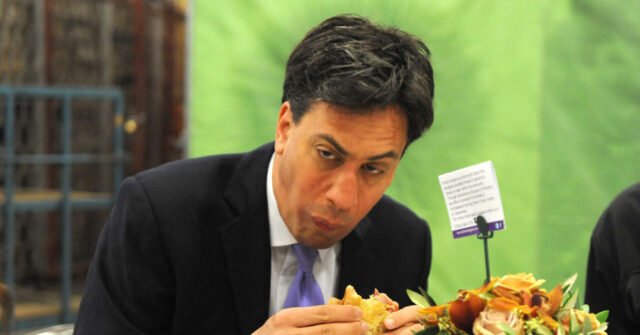In Britain, the sandwich is not only a staple of the diet but also a symbol of cultural identity, yet it has recently become a contentious issue for Conservative Party leader Kemi Badenoch. In an attempt to project an image of toughness, Badenoch dismissed the notion of taking lunch breaks, proclaiming that “lunch is for wimps.” She described her work style as one in which she eats at her desk, occasionally enjoying a steak, thereby trivializing what many consider a fundamental aspect of the workday. However, her comments took a more contentious turn when she expressed a disdain for what she termed “moist” bread, which she deemed as not being “real food,” likely anticipating backlash from the public who revere the humble sandwich, a beloved aspect of British cuisine.
This peculiar relationship with the sandwich has historical precedents in British politics, reminding observers of how seemingly trivial issues can have significant ramifications. Ed Miliband, a former Labour Party leader, found his political career jeopardized due to negative public perception around his awkward attempts to eat a sandwich. His infamous photo encountered significant ridicule, showcasing the appetite of the British public for authenticity and relatability in their politicians. This incident underscores how non-political matters can have a profound impact on the perception and credibility of political figures.
The cultural significance of sandwiches extends beyond mere sustenance; it reflects a deep connection to national identity. In a world where public figures are scrutinized for their everyday actions, American politicians have had similar experiences, such as Bill De Blasio’s infamous use of utensils while eating pizza. Such instances highlight the challenges faced by politicians in navigating their public image, as they are often held to standards that transcend policy and governance, becoming ensnared in the minutiae of daily life.
In response to Badenoch’s statements, a wave of public commentary ensued. The left-wing Prime Minister highlighted the sandwich as a quintessential element of British heritage, lauding it as a “Great British Institution.” Rishi Sunak, a former Prime Minister, joined the conversation by proclaiming sandwiches as his favorite meal, positioning himself in alignment with the common citizenry. Such endorsements not only reinforce the sandwich’s place in British culture but also allow politicians to connect with voters on a more personal and relatable level, especially amid criticisms of elitism.
Industry representatives have joined the fray, with the head of the British Sandwich Association dismissing Badenoch’s comments as “rubbish,” emphasizing the sheer volume of sandwiches consumed annually in Britain, amounting to 3.5 billion commercially-made sandwiches. This metric serves to underline the sandwich’s embeddedness in the national diet and the communal experience surrounding meal breaks, illustrating the disconnect that some political figures may have with the everyday lives of citizens. Contrastingly, Nigel Farage, a prominent political figure known for his relaxed approach, declared his love for lunchtime, further solidifying his bond with typical British values surrounding food.
In light of these discussions and the potential pitfalls associated with mishandling a staple of national culture, one can’t help but speculate whether being “sandwich savvy” may soon become a requisite for aspiring politicians in Britain. The so-called “sandwich test” posits that politicians need to navigate their image surrounding national culinary icons with care or risk the consequences, which have proven detrimental in the past. While the emphasis on sandwiches might appear trivial, it points to a broader need for authenticity and relatability in leadership, signifying that even the simplest aspects of life can have serious implications for political futures.

